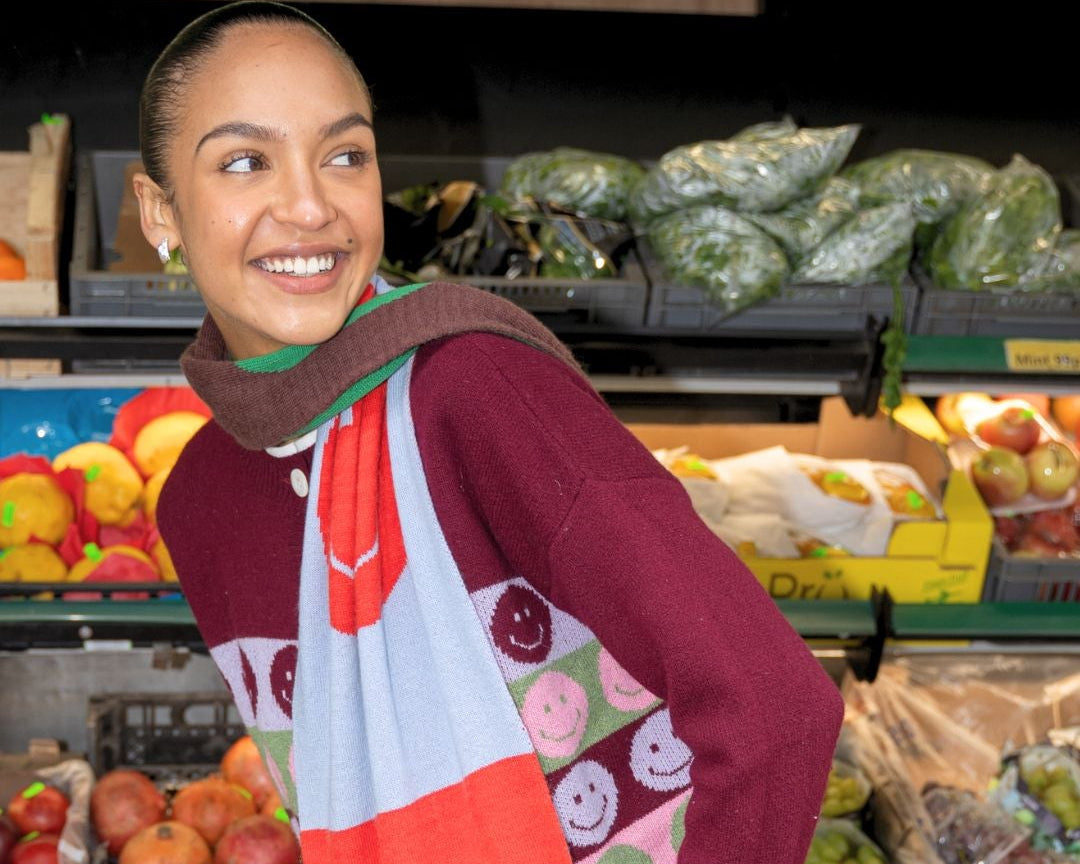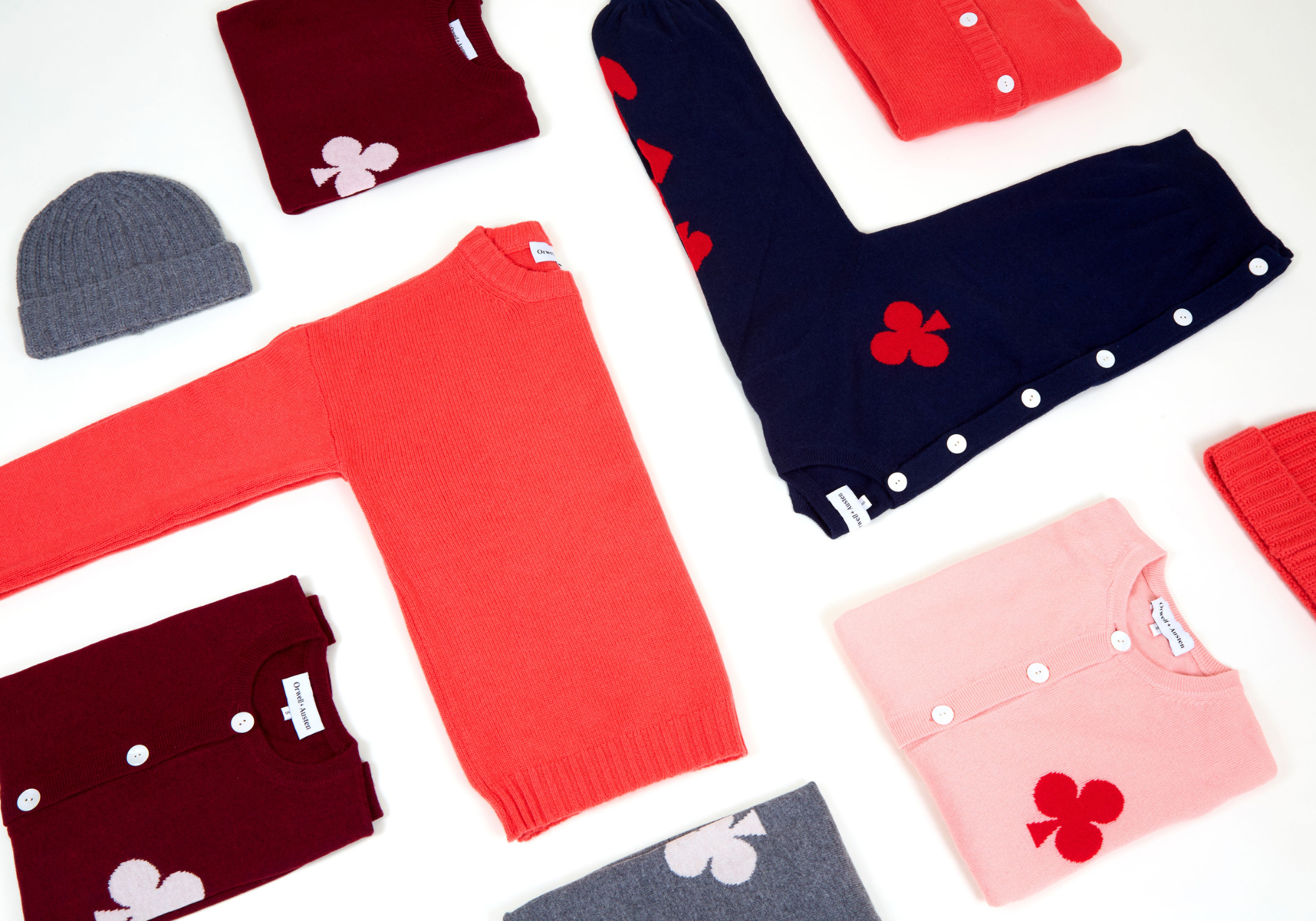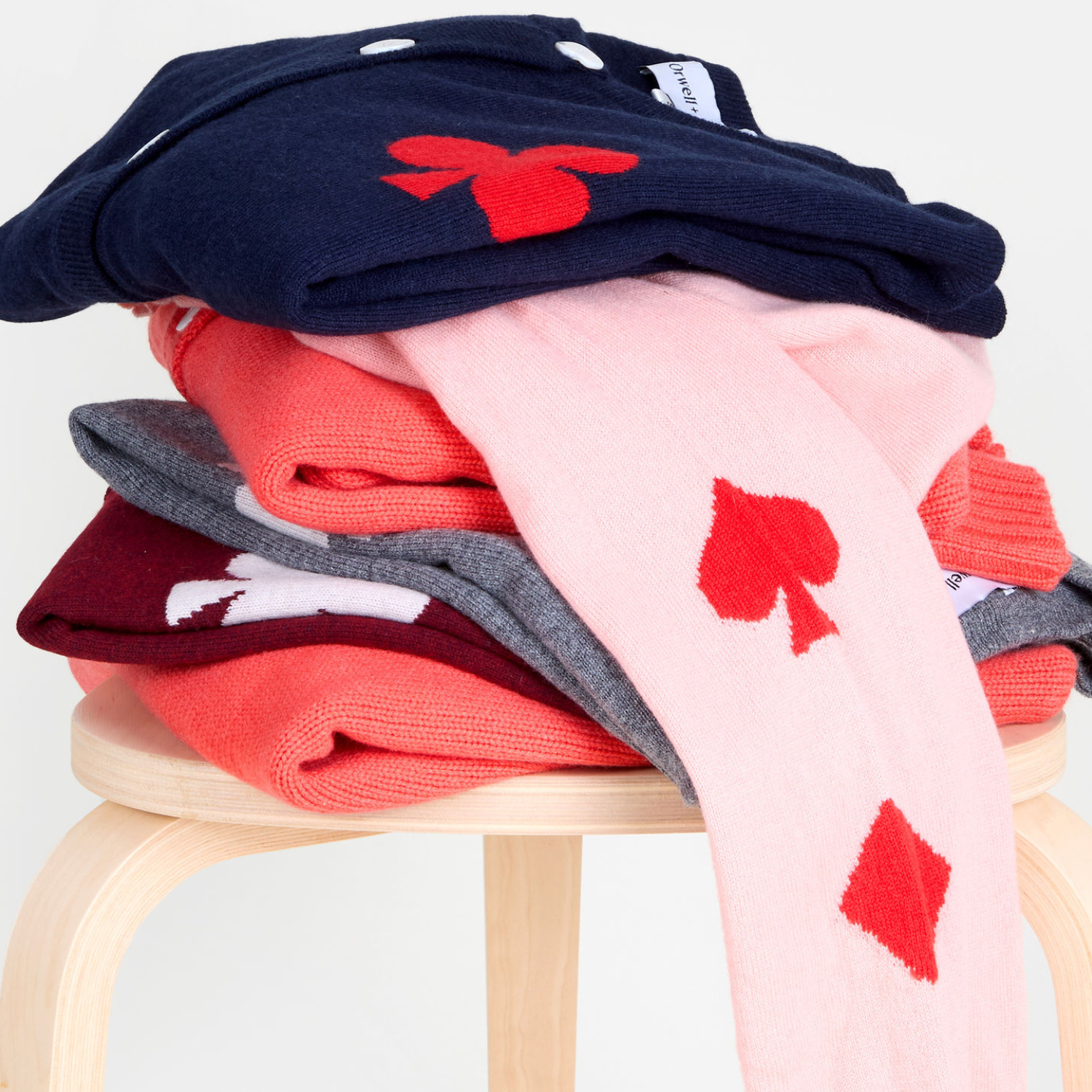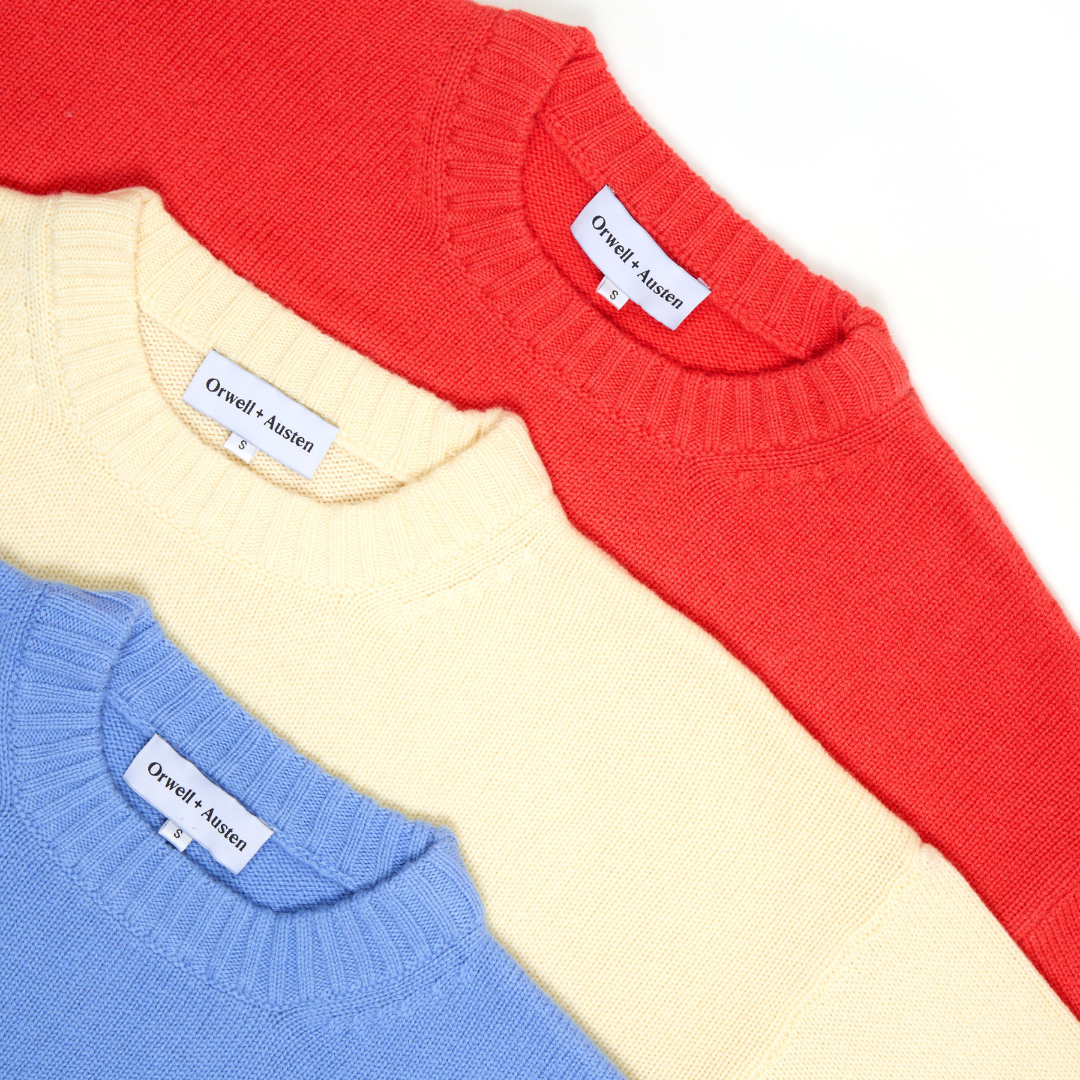MISSION STATEMENT
SUSTAINABILITY
Over a decade ago, our founder Jess fell in love with the artisanal skill and expertise of Nepalese makers. This, hand in hand with a dream to produce colourful, contemporary pieces and a passion for the natural world, resulted in Jess creating Orwell + Austen: a brand where people and the planet always come before profit.
Whilst we are incredibly passionate about social and environmental sustainability, we are aware that it is impossible for any fashion brand to be completely sustainable; after all, anything anybody does will take from the planet in some shape or form. For this reason, we prefer to call ourselves an “eco-conscious” brand; however, we do understand that consumers are more familiar with “sustainable”, so we do use the term from time to time.
We strive to minimise our impact on the environment as much as possible, be that through producing to demand, using recycled yarns, or offsetting our carbon emissions. We understand that these aren’t the ultimate solutions, but they are undoubtedly steps in the right direction.
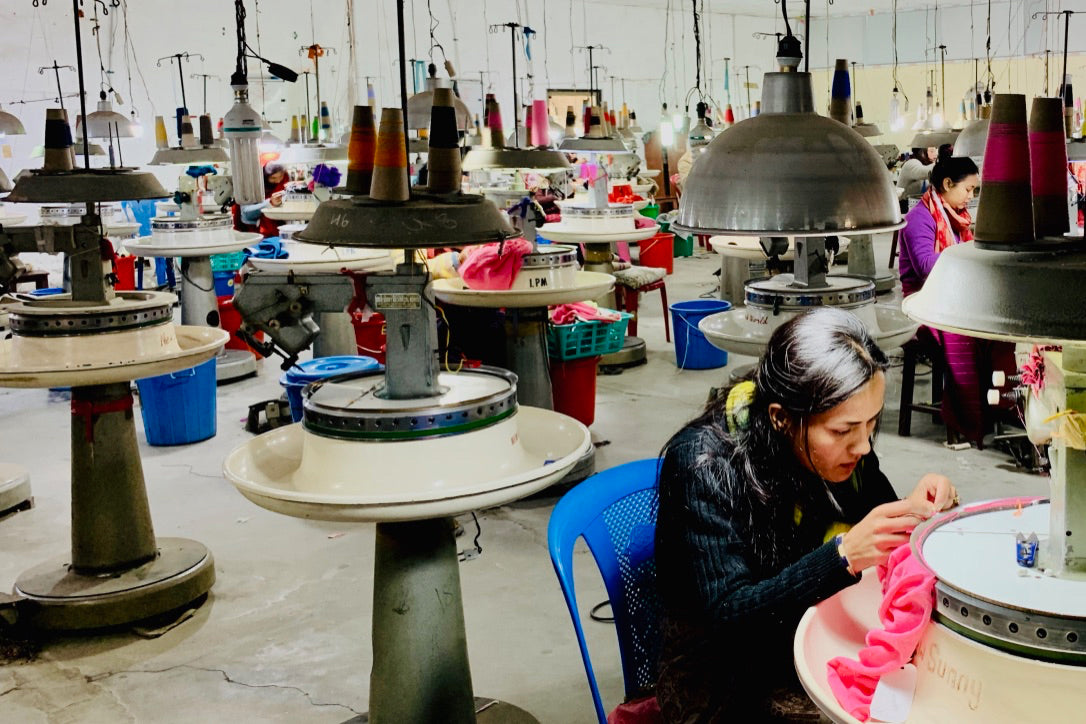
Our Partner Artisans
Socially ethical production is at the heart of Orwell + Austen. From the brand’s very beginning, we have worked with the same small, ethical, family-run producer in the Kathmandu Valley in Nepal - an area globally renowned for the quality of their cashmere and knitwear products. Our founder, Jess, regularly spends time at factory herself, ensuring a collaborative and respectful relationship with the makers.
Our garment workers specialise in creating hand-knitted sweaters using traditional techniques. This, especially their skill, expertise, and craftsmanship, are all elements we have always (and will always) strive to champion. Our number one priority is that they are paid and treated fairly for this, and we pay a premium for our pieces.
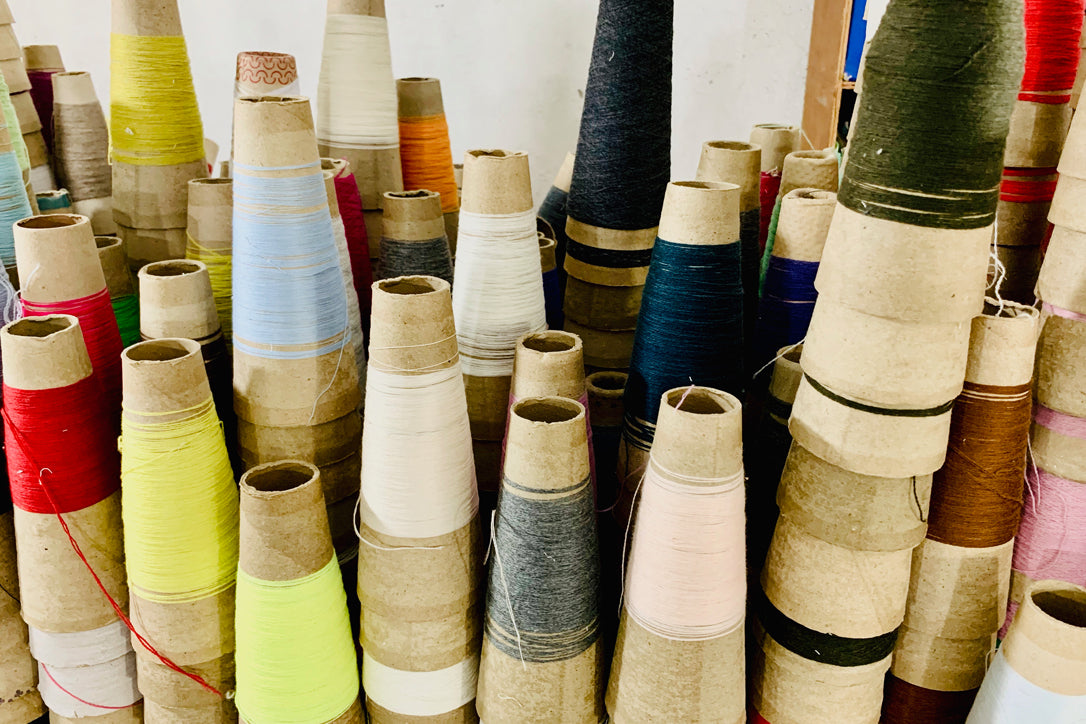
Slow Fashion
We have always championed the idea of buying less and buying better. We believe that an Orwell + Austen piece isn’t just for one season, but it is rather a garment that you will wear for years to come. With this in mind, we strive to provide our customers with designs that are incredibly versatile and that can be styled effortlessly for an infinite number of occasions, but which also feel special and are not trend-dependent. We don't believe in 'retiring' designs just because they are no longer new. In our opinion, great design is great design, and as long as there is demand to continue to make a style, we will do so.
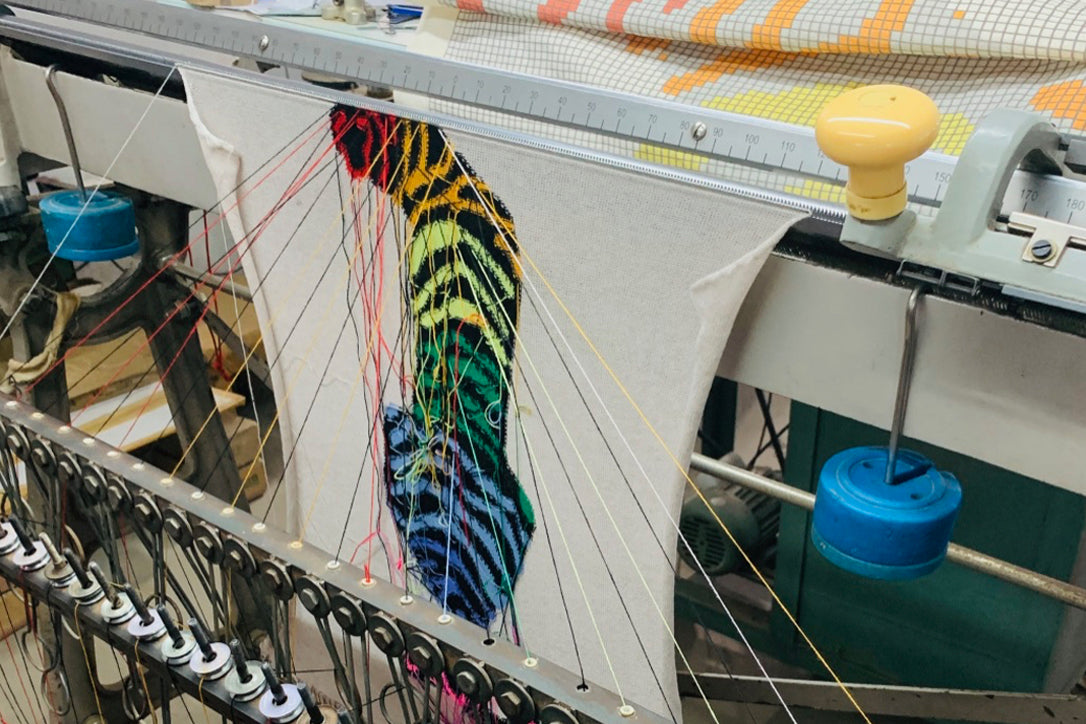
Small Order Runs
We only ever order what we know will be sold; likewise, we only re-order products when they are completely sold out. This minimises waste since there is no excess product and helps us to keep our carbon emissions to a minimum. On top of this, it ensures that we do not place unnecessary pressure and unrealistic production targets on the artisans who create our pieces.
We frequently work to a pre-order model, using tools like 'back in stock notifications' to gauge demand. We know you, our customer, tend to really consider your purchases with us and are therefore comfortable with waiting for your piece to be made just for you! This is slow fashion at its finest.
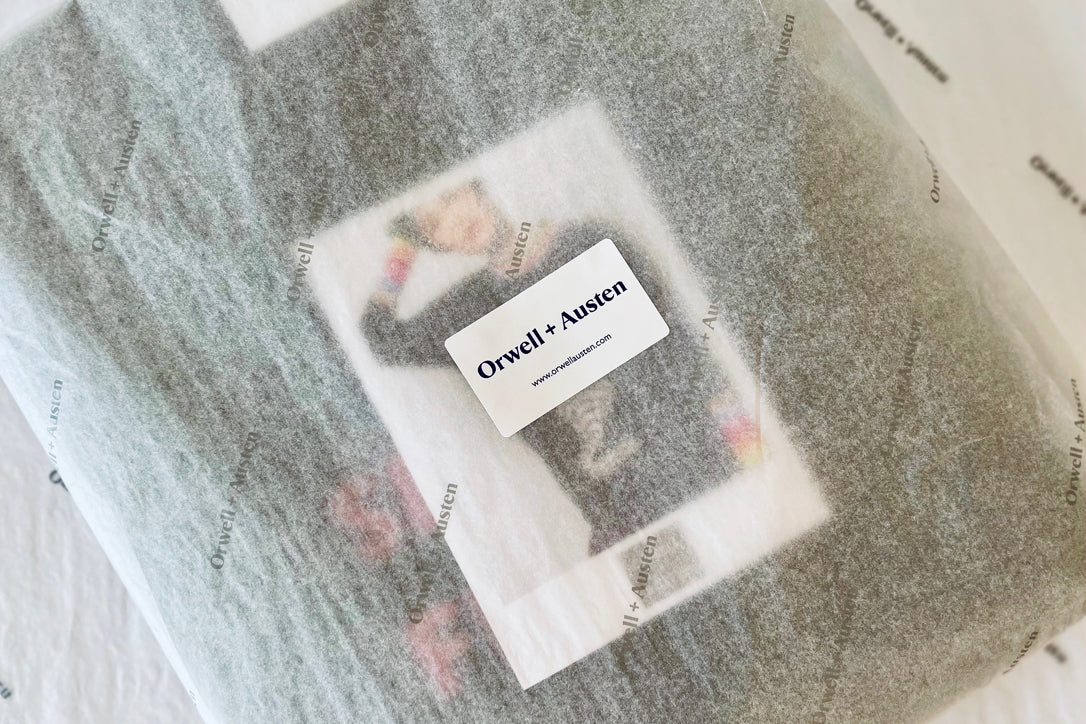
Packing
Whilst we are aware that there is a pressure to have more bows and ribbons with products at our price point, we consciously choose to limit our packaging as much as possible in order to minimise waste. Currently, our pieces come wrapped in Orwell + Austen branded recycled tissue paper which goes alongside a recycled paper thank you card inside a biodegradable mailer. We occasionally use a branded recycled gift box (though once we have used all of the boxes from our current order we will not be using the gift boxes going forward).
Our sweaters and cardigans are sent from the factory to us in London in plastic packaging. To ensure that we do not contribute to more plastic going to landfill all of the plastic bags are saved and sent to be recycled by First Mile Recycling. However, this is not a perfect solution and we are currently transitioning to using cotton garment bags. These have been hand made from raw cotton sourced and crafted in Nepal by our partner factory, and hand stamped with the brand logo; with these, we hope to strike a balance between recycled and reusable elements.
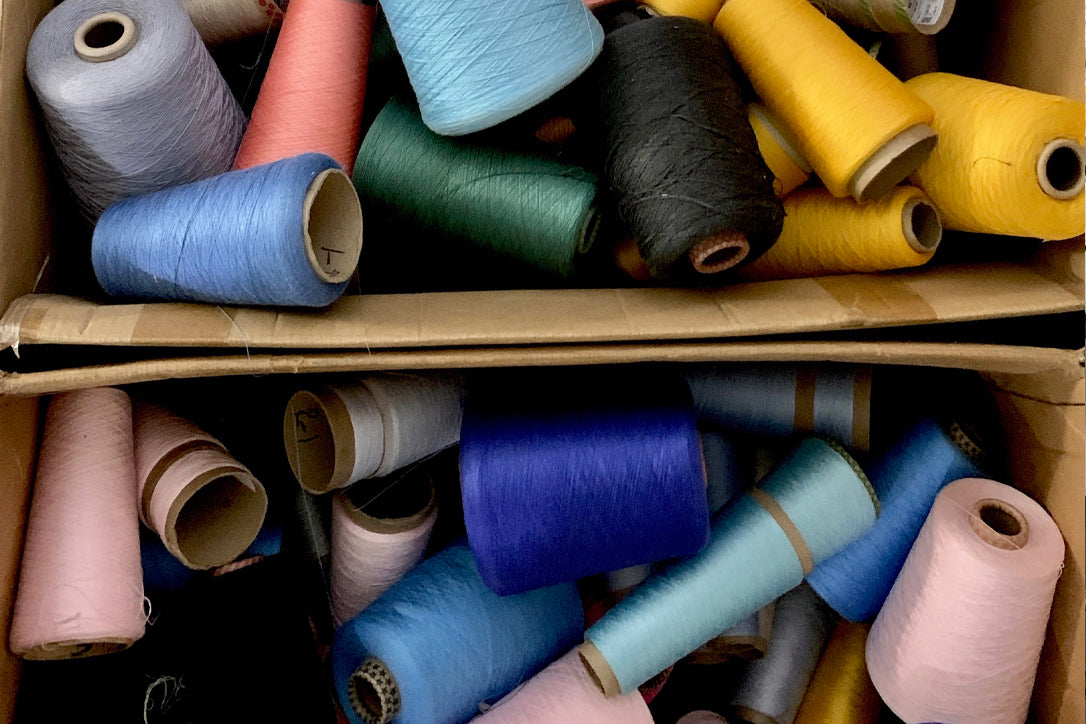
Zero To Landfill
With upwards of eleven million garments ending up in landfill each week (source: Oxfam) - including pieces returned to brands - we are proud to say that we have an absolute zero-waste-to-landfill policy. This is a commitment that the brand never has, currently does not, and never will stray from.
Any excess stock is offered to our customers at our online sample sales through our sample sale website: www.orwellaustensamplesale.com. Access to the samples sales is exclusively to newsletter subscribers who receive an access code to the site when the biannual samples sales open. Whilst older styles that haven’t been sold after several years are eventually donated. Most recently, we gave a number of sweaters to our local women's refugee charity in North London. These were in perfect condition and unworn - they were simply pieces that never made production, and which we did not sell at a sample sale. Before that, we made a donation of pieces to a shelter for women fleeing domestic violence as they generally leave with very few belongings.
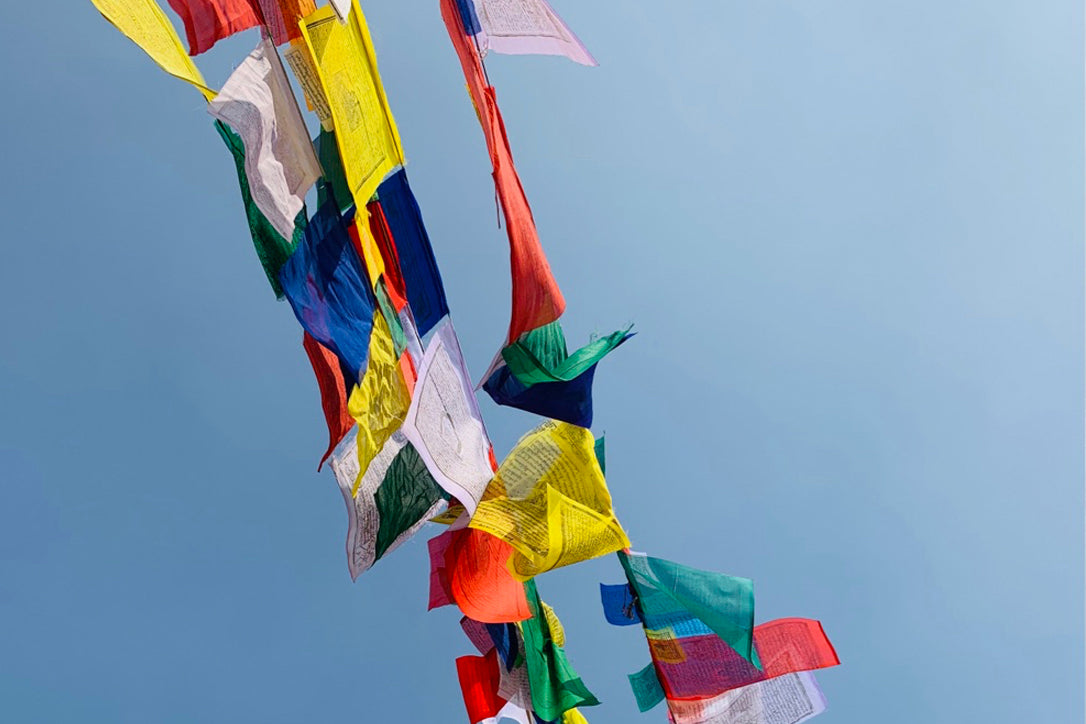
Carbon offsetting
The reality of using Nepalese artisans means that our knitwear is transported to the UK by air freight; this generally involves putting shipments on commercial flights, or courier flights when the former isn’t possible. Clearly, this isn’t great for our carbon footprint and is thus a contributing factor in deciding to carbon offset each year. An ideal scenario would be to manufacture closer to home, but the difficulty is how we then continue to support both a traditional manufacturing process and our partner factory. We have built a strong, long-lasting relationship with the factory ever since the brand started and, after all, a huge driving force behind what we do is the aim of keeping artisanal traditions alive.
Thus, in order to mitigate our impact as much as possible, we offset our carbon footprint at the end of each year. In 2019, we donated to a reforestation programme and, in 2020, we donated £7,500 to the Pipal Tree Project. This specific donation contributed towards the biodynamic and carbon negative elements of the school project, as well as funding the salaries of two teachers for the next year. We are planning to produce a charity focused piece for 2024 with a percentage of profits going to an on the ground Nepalese charity.
On top of this, we are proud to be members of Ecologi, an organisation who help us to take real action against climate change by reducing the carbon footprint of our small (but mighty) team through donations to carbon offsetting projects.
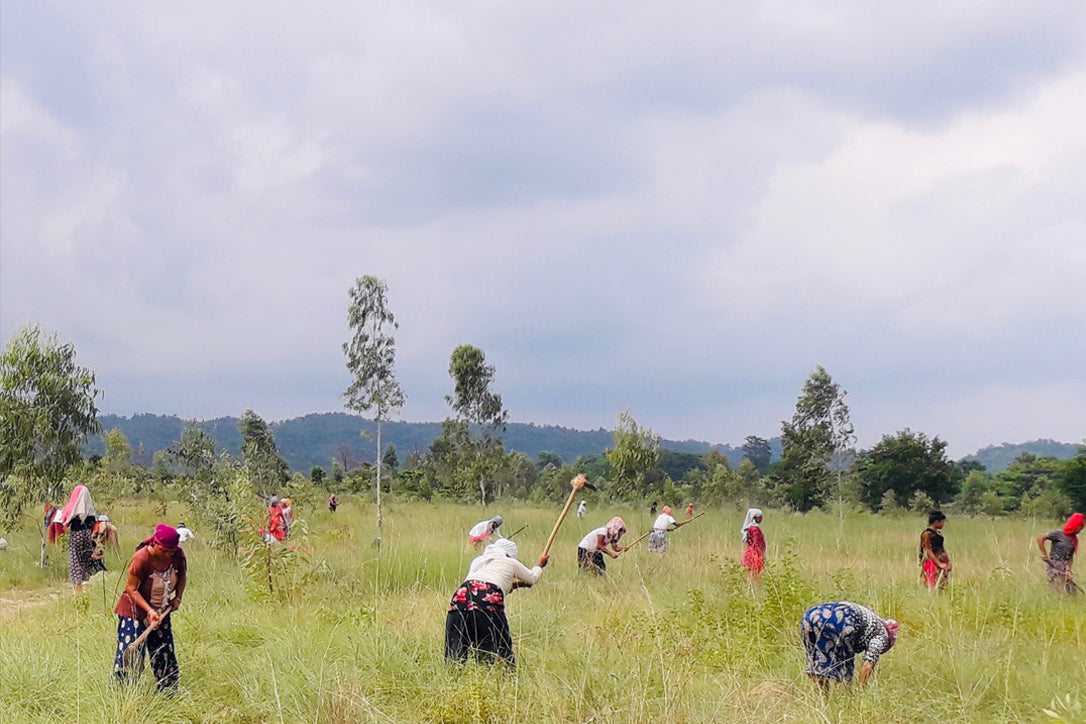
Charity
In the past, we have produced various sweaters with profits going to charity. In 2018, we collaborated with Kat Farmer on our True Colours collection, from which 25% of the profits was donated to The National Autistic Society. In July and August 2020, all of the profits from our Love Rainbow t-shirts sales were donated to an on-the-ground Nepalese charity named Our Sansar in support of their COVID relief fund. For 2021 we raised further funds for Pipal Tree with the release of a new charity piece. We are agains looking to partner with a Nepalese charity in 2024.
MATERIALS
Throughout our product range, you will find materials of only the highest quality. Our sweaters and cardigans are made of either recycled cashmere, a cashmere and fine wool blend, and occasionally a very fluffy 100% virgin cashmere (which is the only time we will use 100% virgin cashmere).
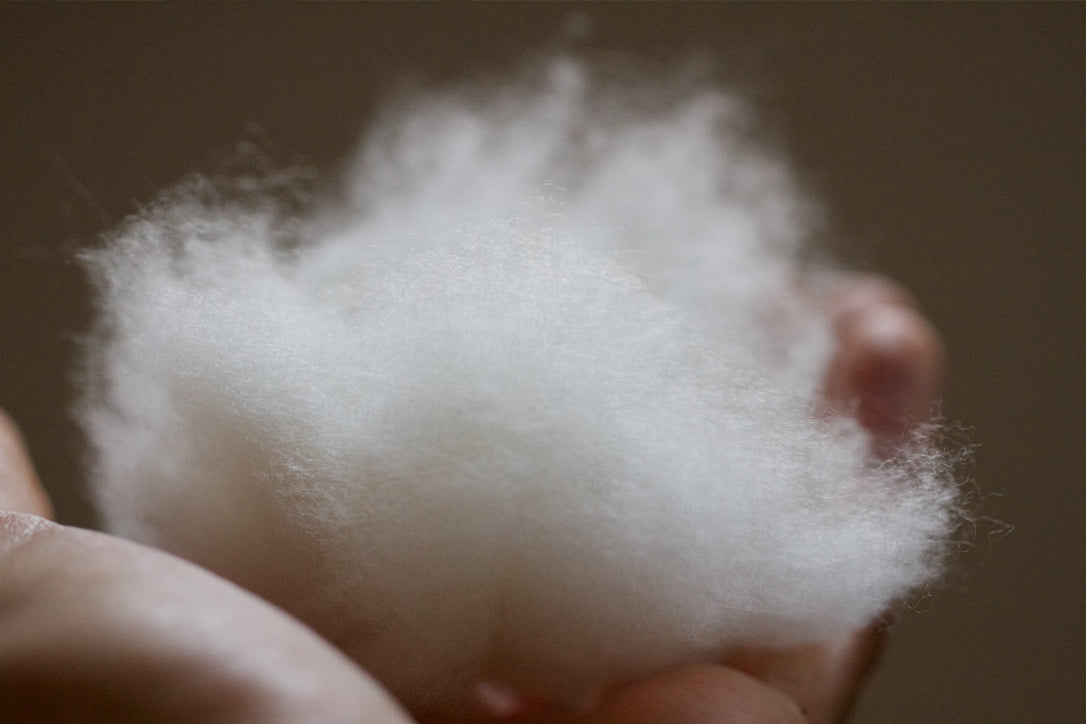
Cashmere/Wool
The majority of our pieces are created using a 30% Grade A cashmere and 70% fine wool blend. This is more environmentally responsible than other virgin cashmere-heavy compositions for a number of reasons:
• The demand for virgin cashmere has increased dramatically, meaning an increase in goats and overgrazing. Environmentally, this is not ideal; for this reason, we choose to blend virgin cashmere with wool.
• Fine wool has a much lower environmental impact than cashmere, and when blended with virgin cashmere you still get a lovely luxurious-feel sweater. For Spring pieces we will also sometimes use a cotton cashmere yarn, or silk cashmere blended yarn.
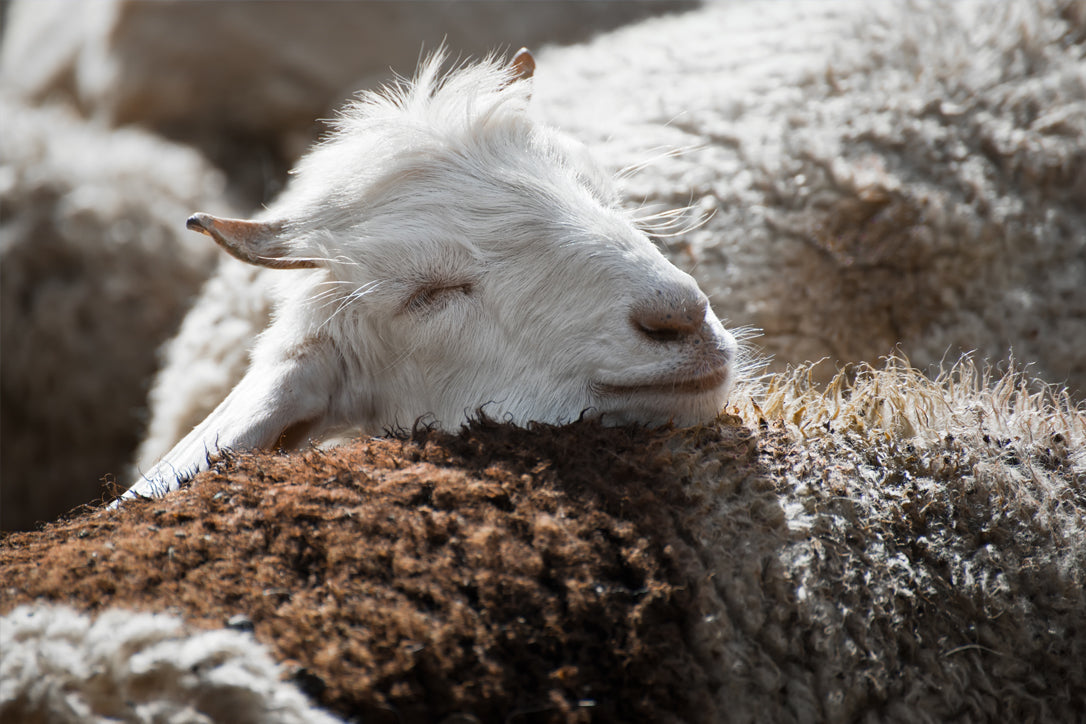
Animal Welfare
All of our cashmere is produced by a supplier who does not shear their goats. Instead, they comb the goats for the fine cashmere hair, leaving the animals with their protective (and coarse) guard hair.
Shearing, whilst faster than combing, is very distressing and potentially dangerous to the cashmere goats. Therefore, we are resolutely committed to working with yarn suppliers who do shear their cashmere goats.
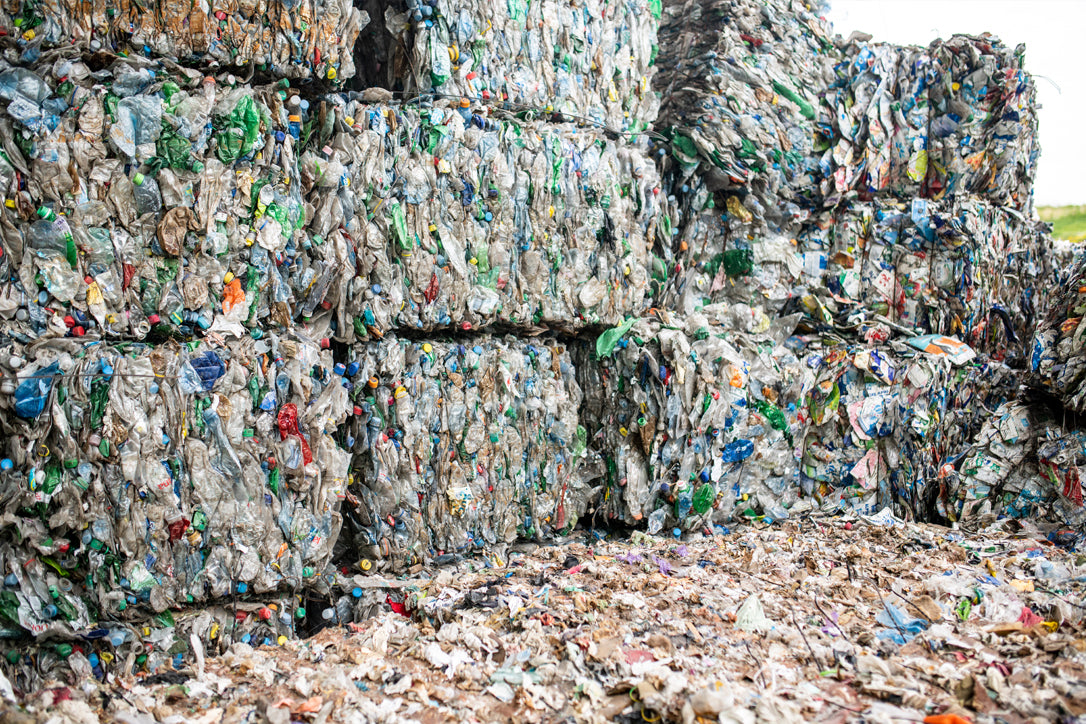
Plastic
Our main yarn composition will never include acrylic or plastic derived fibres. The only time we have ever used such yarns has been in the slogan panel of the Disco Sweater, where Lurex has been the only material able to achieve the sparkle. In this case, the Lurex accounted for less than 3-5% of the yarn used in the entire style, with cashmere wool constituting the vast majority of the sweater.
We like to know that once a piece is at the very, very end of its life (i.e. it can no longer be re-worn, repaired or repurposed), it will decompose. For that reason we are committing to not using any Lurex or plastic derived yarns in any other pieces going forward. There is more than enough plastic in the world without us adding to the problem.
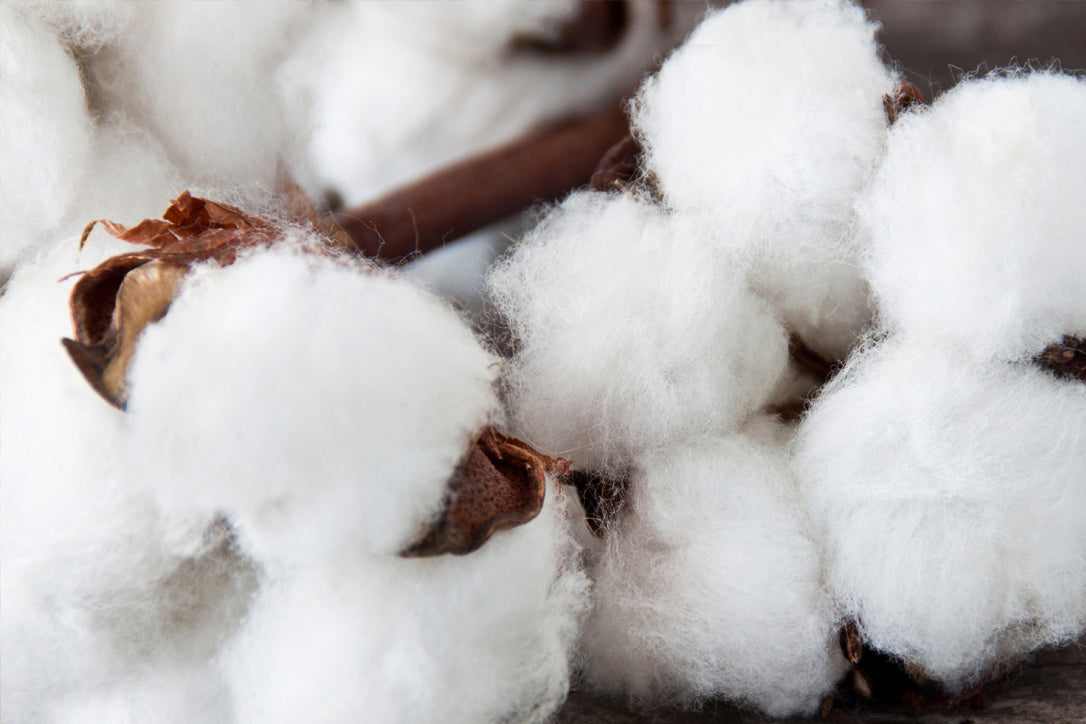
Cotton Organic - Fair Wear
All of our cotton t-shirts and sweatshirts are made out of GOTS certified organic cotton, meaning that they meet some of the highest organic standards in the world. You can read more about the requirements here, but essentially this means that no pesticides are used and the processing of the cotton is as socially responsible as possible.
WHAT COULD WE DO BETTER?
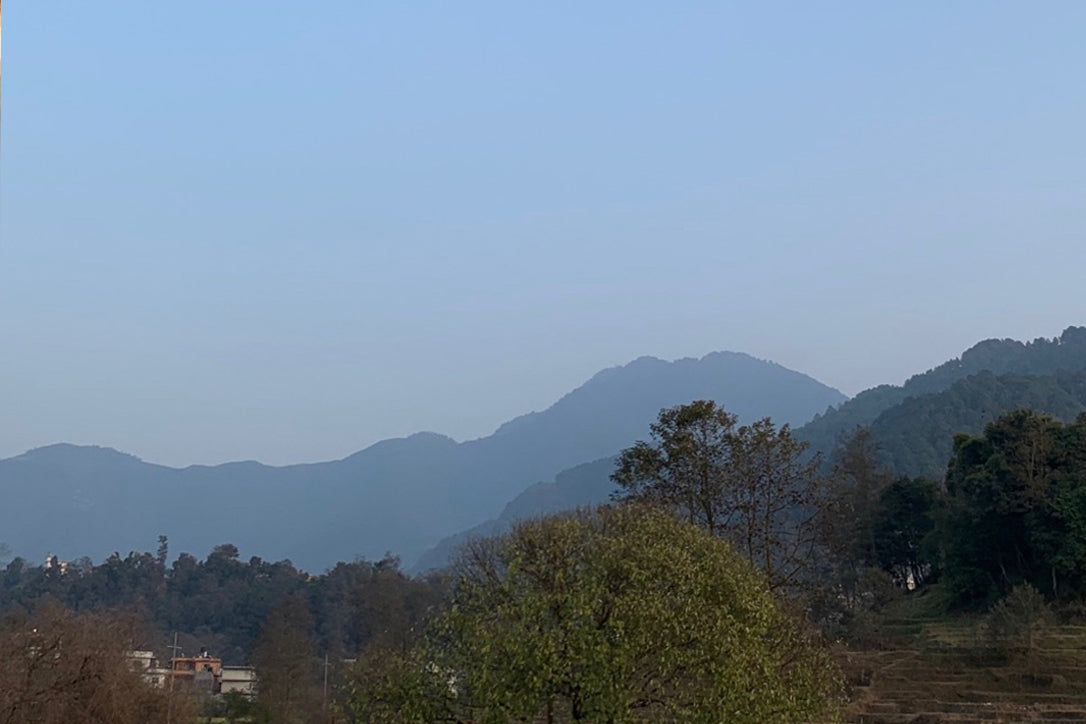
Airmiles
The reality of using Nepalese artisans means that our knitwear is transported to the UK by air freight; this generally involves putting shipments on commercial flights, or courier flights when the former isn’t possible. Clearly, this isn’t great for our carbon footprint and is thus a contributing factor in deciding to carbon offset each year. An ideal scenario would be to manufacture closer to home, but the difficulty is how we then continue to support a traditional manufacturing process (and our partner factory who we have built a strong long lasting relationship with since the brand started almost 9 years ago); after all, a huge driving force behind the brand is the aim of keeping artisanal traditions alive.
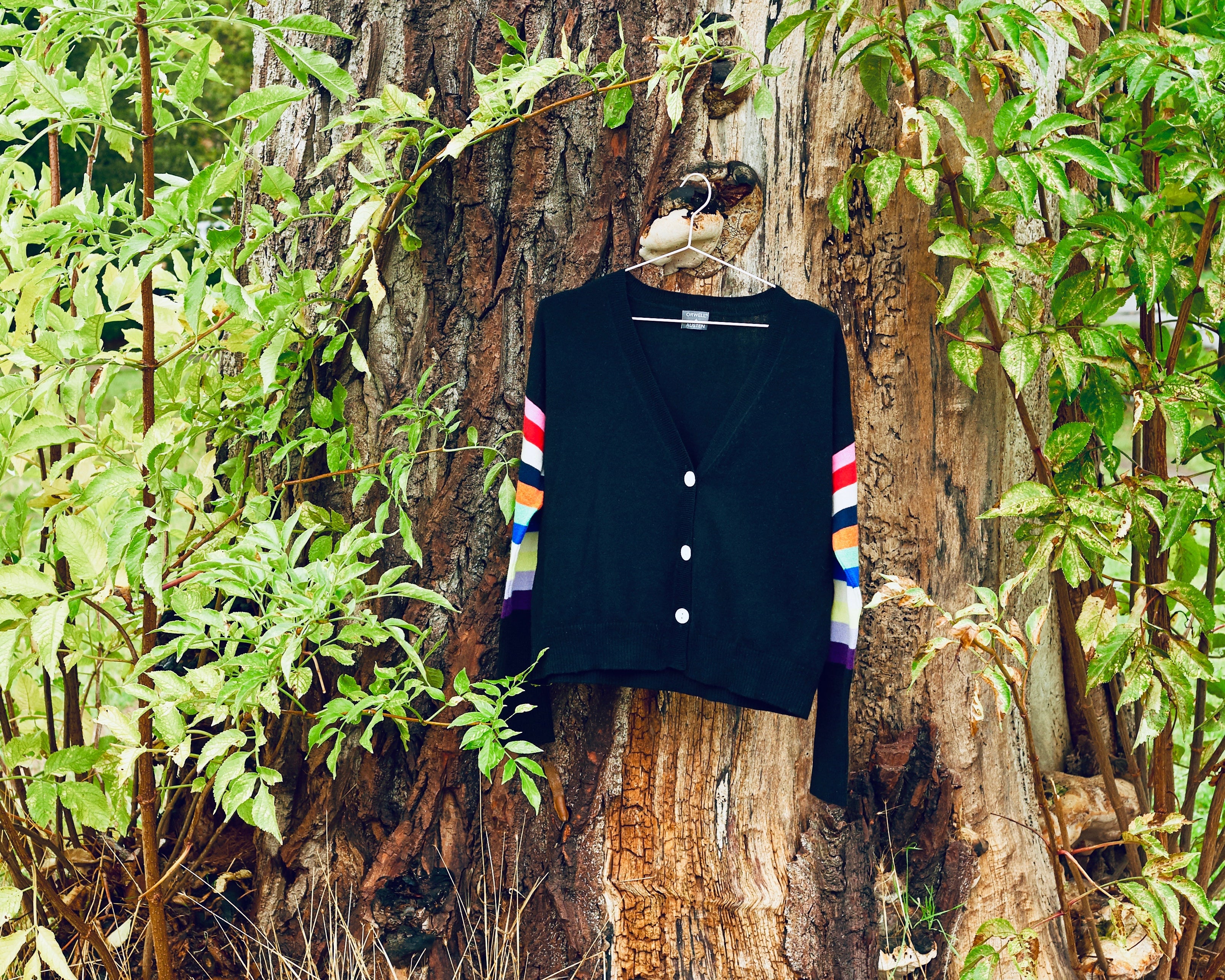
Looking Towards The Future: Circularity
We are really eager to implement a take-back scheme, where our customers can send in their old sweaters (when truly at the end of their lives) in order to recycle and repurpose the yarns. This would encourage a circularity to the brand - something that is incredibly beneficial to the environment. This is something we are exploring in detail in 2021. As a one person brand we are looking at the way to ensure the logistics of this are workable at a very small scale.

